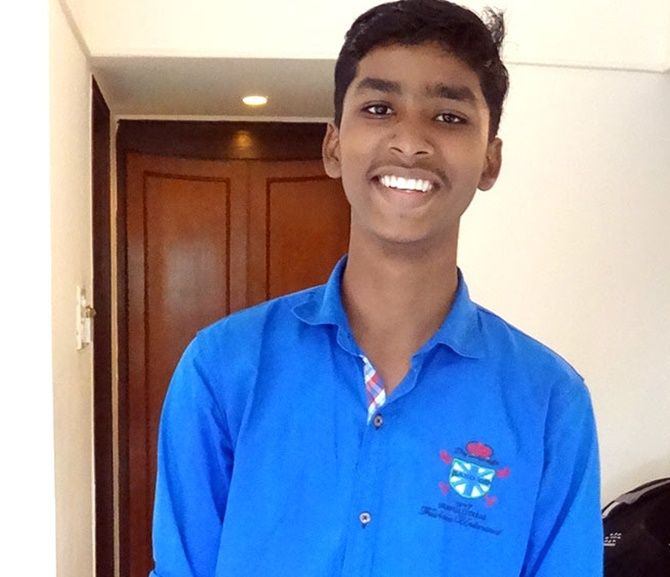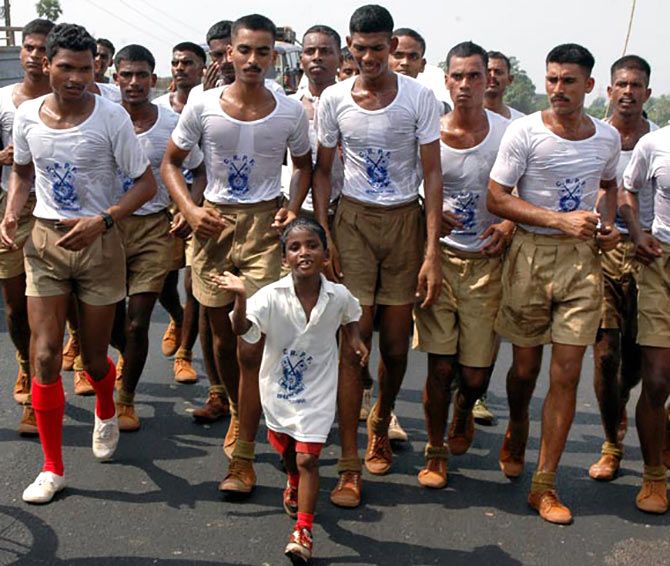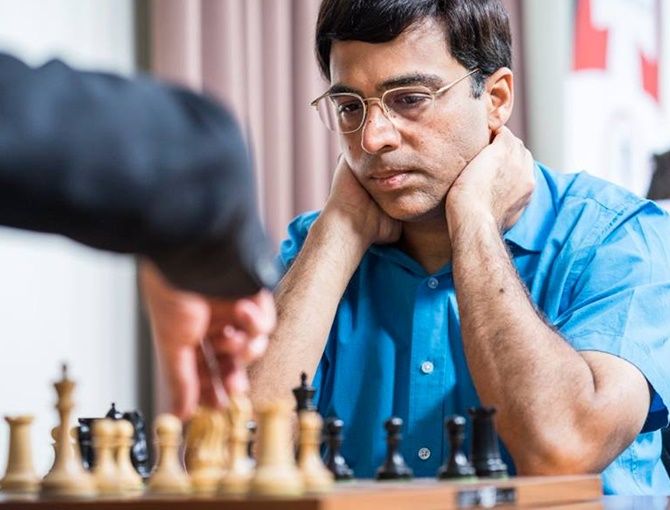A summary of sports events and persons who made news on Tuesday.
 No one in the history of marathon has won nine out of 10 races, including an Olympic gold, except Kenya's Eliud Kipchoge.
No one in the history of marathon has won nine out of 10 races, including an Olympic gold, except Kenya's Eliud Kipchoge.
Considered by many as the greatest marathon runner ever, Eliud was discovered by the accomplished coach Patrick Sang at the age of 16.
After less than two years of training under Sang, Kipchoge stunned the world by winning the 5,000 metres at the Paris world championships in 2003, beating greats like Hicham El Guerrouj and Kenenisa Bekele.
Having stunned the world himself by running 65km in 7hrs, 2min at the age of six, India's Budhia Singh, now 16, is a picture in contrast. He has been forgotten and abandoned.
Without a coach, the youngster trains six days a week, all on his own, and still dreams of Olympic glory. "I want to win Olympic gold for India in marathon at the 2024 Olympics," Budhia said.
When asked about the importance of making sure promising talent is nurtured correctly, Sang tells Reuters: "The role of a coach in handling young runners like Budhia is critical. Workload for an age like his must be monitored so that they're not over trained, exposed to injuries and burn out."

In fact, Sang goes a step further and says he is willing to help Budhia. Having trained Kipchoge for 17 years, and several other champion athletes, Sang is known to choose his words carefully when discussing prospective students.
After hearing about the extraordinary childhood of Budhia, where he ran marathon-equivalent distances more than 25 times by the age of six, the 54-year old coach takes a cautious approach.
"We could be looking at a potential athlete, depending on when he is put to test to see what distance he can do. Running at that tender age is a sign of potential," says Sang.
"If everything is normal then some of us can come in and contribute. He can be helped if potential is there," adds Sang, who was in Bangalore for the recent TCS World 10K event.
Sang, himself a 3,000m steeplechase silver medallist at the Barcelona Olympics in 1992, says Budhia's potential could even be converted to shorter distances on the track before tackling professional marathons.
The coaching guru believes it takes three to five years to reach world-class marathon runner ranges, except for late bloomers. After turning 20, Budhia will have six years to take a shot at the 2028 Olympics in Los Angeles, if not the 2024 Games in Paris.
As the interview approaches the finish line, Sang tells Reuters: "After all the assessment and test of his potential, if Budhia is found to be OK, then I'm willing to find a sponsor and train him in Kenya."
Anand draws with Aronian in Norway blitz

World rapid champion Viswanathan Anand was caught off-guard by Levon Aronian of Armenia as he conceded an easy draw in the first round of Altibox Norway chess tournament, in Stavanger, Norway.
Coming to the first round after a fine performance in the preceding blitz tournament where he tied for second spot, Anand could do little as Aronian came up with an unusual move order in the Anti-Berlin as black and the game ended without any drama.
It was on the eighth move that Anand was caught unaware. Aronian was following an earlier game by countryman Hrant Melkumyan and as Anand confided to him after the game, he had not paid enough attention to this move order.
“I was just telling Levon that even though I was aware of this idea I wasn't able to spend a lot of time on it, since there isn't a sub-system in the Anti-Berlin that Levon doesn't play. So I spread myself too thin”, said Anand in the post-game chat.
The day witnessed four draws out of five games and the lone winner was World champion and local favourite Magnus Carlsen who showed the way to his next challenger Fabiano Caruana of United States.
While Carlsen and Caruana are set to meet in November this year for the world championship clash in London, the former took a psychological edge for the match as this was their last Classical encounter before London.
The Bishops opening by Carlsen only led to complications after the Norwegian parted with a pawn but the ensuing tension worked in his favour as Caruana erred to reach a worse queen and pawns endgame. Although he did not show a computer-like technique, Carlsen was still at his prime as he slowly breached a tenacious defense.
Ding Liren of China took his unbeaten stint to 73 games in Classical chess after surviving some anxious moments against American Hikaru Nakamura. The latter held a clear better position at one point in the middle game but it slipped out of his hands almost immediately.
Azerbaijani Shakhriyayr Mamedyarov put an end to uncertainty over his withdrawal due to a tooth problem by holding off an easy draw with Maxime Vachier-Lagrave of France while Wesley So of United States and former winner Sergey Karjakin of Russia were involved in another peaceful affair of the day.
Carlsen emerged as the early leader in the ten-player round-robin event that is likely to be the strongest super tournament of the year.
Caruana's loss puts him at the bottom of the tables while the other eight contestants are all tied second with half a point.
Eight more rounds remain in the tournament.
Results round 1: V Anand (Ind) drew with Levon Aronian (Arm); Magnus Carlsen (Nor) beat Fabiano Caruana (Usa); Hikaru Nakamura (Usa) drew with Ding Liren (Chn); Wesley So (Usa) drew with Sergey Karjakin (Rus); Shakhriyar Mamedyarov (Aze) drew with Maxime Vachier-Lagrave (Fra).
New Delhi to host torch relay of Asian Games on July 15
A host of sports personalities from the past and present will be part of the 2018 Asian Games' torch relay to be held in the national capital on July 15.
The Indian Olympic Association (IOA) has signed a Memorandum of Understanding (MoU) with the Organising Committee of the Indonesia Asian Games (INASGOC) to conduct torch relay of the 18th Asian Games, to be held in Jakarta and Palembang from August 18 to September 2.
IOA Secretary General Rajeev Mehta said he was delighted about the torch relay being organised where it all began for the Asiad in 1951.
The first-ever Asian Games were held in New Delhi in 1951 with 11 nations competing in it across eight sports. Japan had topped the medal tally and was followed by hosts India.












 © 2025
© 2025